The terminally ill man who is set to become the world’s first head transplant recipient says more details about his extraordinary surgery will be revealed next month.
Valery Spiridonov, a computer scientist from Russia, is set to undergo the risky procedure next year.
Today, the 31-year-old is wheelchair reliant due to a muscle-wasting disease, announced his neurosurgeon would explain how the plan was progressing in September.
Mr Spiridonov says he is ready to put his trust in controversial surgeon Dr Sergio Canavero who claims he can cut off his head and attach it to a healthy body.
Neither the exact date or location have been chosen yet, but the world first procedure is aimed to take place in December 2017.
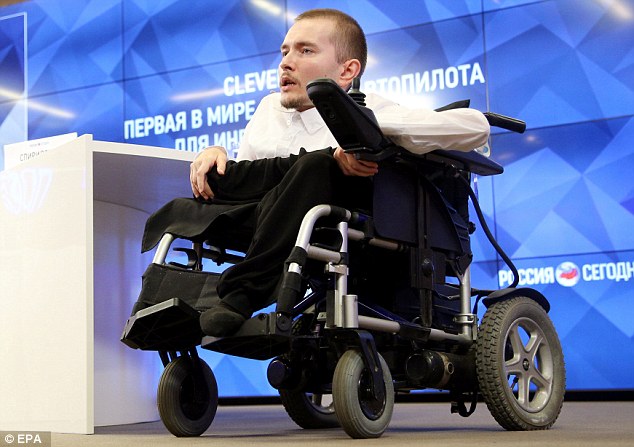
And speaking at a press conference, he said his Italian surgeon – dubbed Dr Frankenstein – will reveal more soon.
Mr Spiridonov said: ‘I continue the dialogue with Mr Canavero, we exchange information and as far as I know, he is preparing a portion of news this September.’
Severely handicapped, Mr Spiridonov received worldwide coverage when he volunteered as a guinea pig for the operation.
He suffers from Werdnig-Hoffman, also known as spinal muscular atrophy, which can result in problems moving, breathing and swallowing.
Most people with the disease die within the first few years of life, but he is among the 10 per cent who survive into adulthood.
With his condition worsening every day, he previously told the MailOnline that he wants the chance of having a new body before his disease kills him.
He claimed his family fully support his decision to be the first human to undergo such surgery and said: ‘If you want something to be done, you need to participate in it.
‘I do understand the risks of such surgery. They are multiple.
‘We can’t even imagine what exactly can go wrong. I’m afraid that I wouldn’t live long enough to see it happen to someone else.’
The new body would come from a transplant donor who is classified brain dead but otherwise healthy.
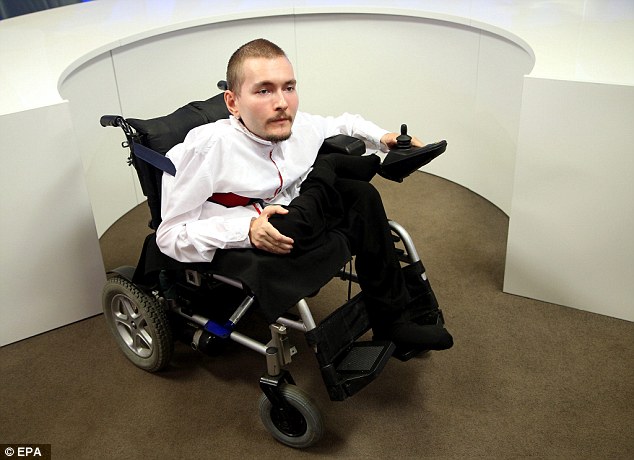
Dr Canavero has named the procedure HEAVEN, which is an acronym for head anastomosis venture. Anastomosis involves the surgical connecting of two parts.
The cost of the 36-hour operation, which could only be performed in one of the world’s most advanced operating theatres, has been estimated to cost £14 million.
And he insists all of the necessary techniques to transplant a head onto a donor body already exist.
Both donor and patient would have their head severed from their spinal cord at the same time, using an ultra-sharp blade to give a clean cut.
The patient’s head would then be placed onto the donor’s body and attached using what Dr Canavero calls his ‘magic ingredient’ – a glue-like substance called polyethylene glycol – to fuse the two ends of the spinal cord together.
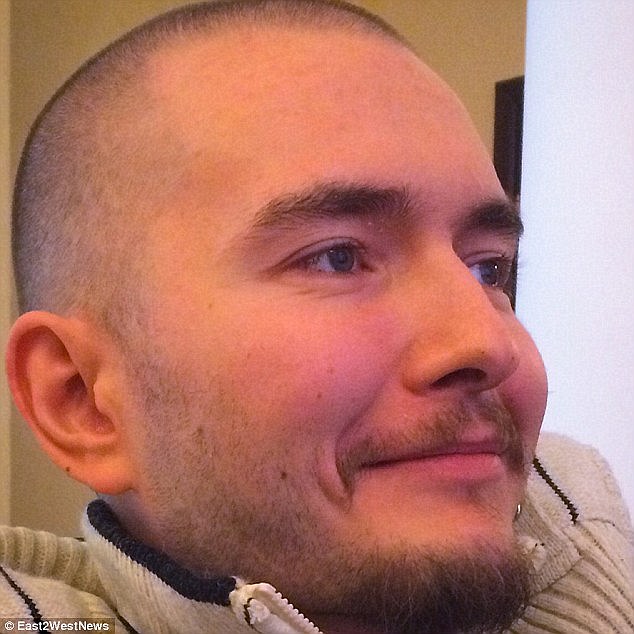
The muscles and blood supply would be stitched up, before the patient is put into a coma for four weeks to stop them from moving while the head and body heal together.
When they wake the patient should be able to move, feel their face and even speak with the same voice.
Powerful immunosuppressant drugs should stop the new body from being rejected.
Critics say Dr Canavero has simplified the difficulties involved in reattaching a spinal cord and said his plans are ‘pure fantasy’.
But if the operation is successful, the pioneering procedure could give new hope to thousands of paralyzed and disabled people.
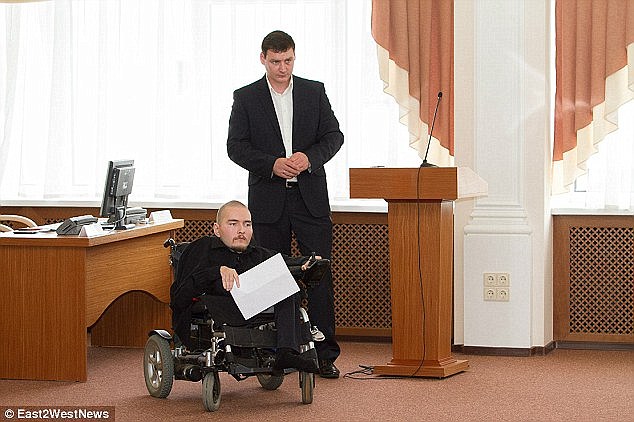
Mr Spiridonov, who is also a tech scientist, presented his autopilot wheelchair system at a press conference in Moscow.
His project – called Clever Chair – will improve the quality of life for people who can’t walk.
But he said his project is aimed to help disabled people in the masses, and not just individual cases – unlike his surgeon’s operation.
However, he hopes his project can complement Dr Canavero’s procedure, he added: ‘I want to help as many people as I can with the technologies that do not raise doubts and debates.’
Mr Spiridonov is also attempting to raise funds for the surgery himself – by selling souvenir mugs and t-shirts.
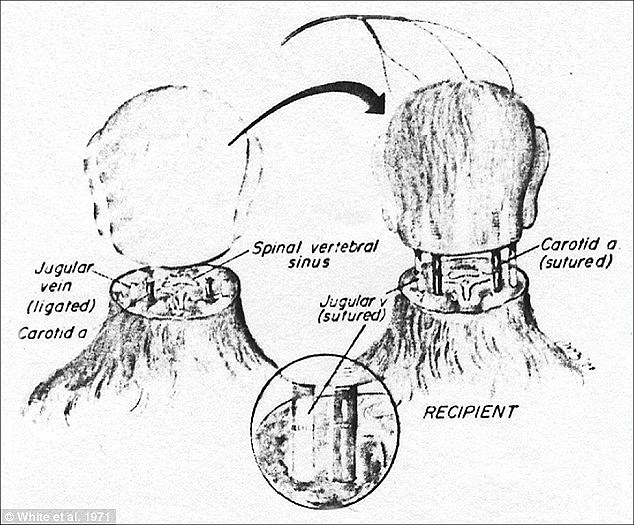
He has marketed a range of clocks, coaster and caps with the logo ‘Desire for Life’ and showing an image of his head on a healthy, muscular body.
The first monkey head transplant was performed 45 years ago and a basic operation on a mouse was carried out in China recently.
Dr Robert White transplanted the head of one monkey onto the body of another at the Case Western Reserve University School of Medicine.
The monkey died after eight days because the body rejected the head.
The monkey was unable to breathe on its own. The animal could not move because the spinal cord were not connected.
Originally taken from Daily Mail
